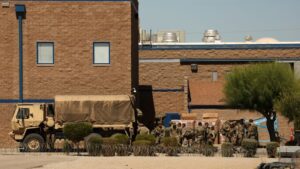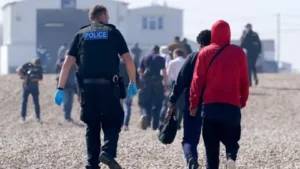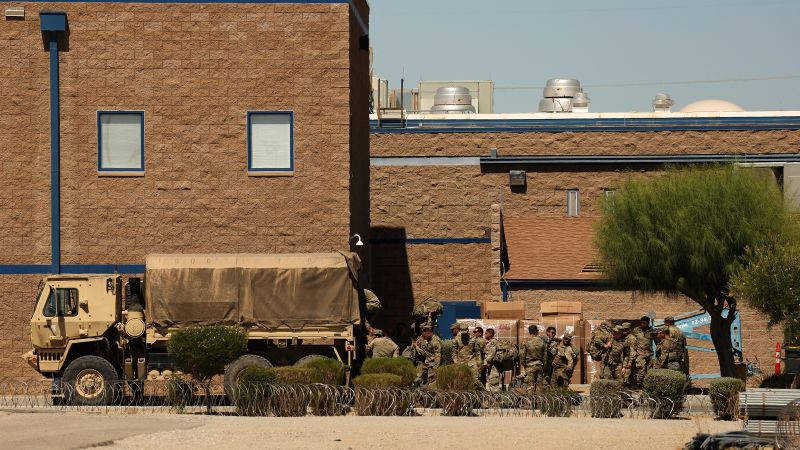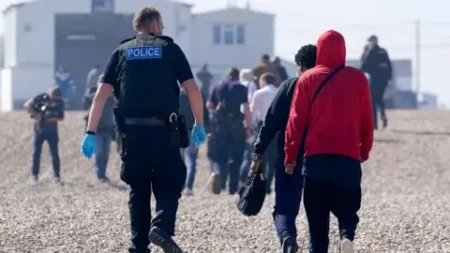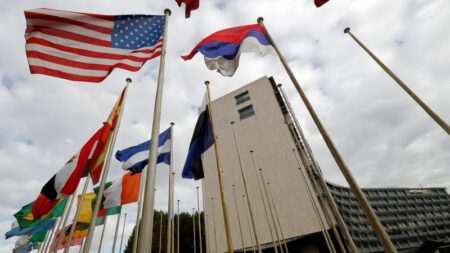In the current political landscape, the mobilization of approximately 2,000 National Guard troops to assist the Immigration and Customs Enforcement (ICE) has become a central issue. This initiative is reported by a U.S. official and other knowledgeable sources, who suggest that this action could be executed within the coming week. However, the exact timeline remains unclear as discussions and deliberations are ongoing. Notably, the troops will operate under Title 32 status, a legal framework that places them under the command of their respective governors. This provision also exempts them from the Posse Comitatus Act, which limits military involvement in domestic law enforcement activities.
The urgency of this mobilization can be traced to the Trump administration’s intensified focus on immigration enforcement, leading to significant increases in ICE custody. Recent data indicates that approximately 57,000 individuals are currently detained by ICE, a stark rise that has prompted senior officials to seek additional funding from Congress. This influx of resources is being used to enhance detention capacity across the nation, raising concerns among various stakeholders about the implications of such moves.
The mission for the mobilized troops will encompass a variety of hands-on roles, which include tasks like conducting fingerprinting and mouth swabbing of detainees. Historically, the National Guard’s involvement has been limited primarily to administrative support for ICE. However, the evolving needs expressed by ICE signify a potential shift toward more direct engagement by the National Guard in immigration-related tasks.
The Pentagon, while refraining from commenting on specific operational strategies or future plans, has indicated that the Department of Defense (DoD) is fully prepared to support the Department of Homeland Security (DHS). This readiness aligns with implementing executive orders set forth by the President aimed at enforcing immigration policies and enhancing national security.
Despite these developments, the Department of Homeland Security has not commented on inquiries regarding the mobilization plans. Sources reveal that the DHS requested the assistance of thousands of National Guard personnel to facilitate a range of important functions, including support for processing, transportation, and security at detention facilities. The request cited by CNN indicates that up to 2,500 personnel are expected to contribute to essential operations such as meal distribution and emergency response within these facilities.
The tactical significance of mobilizing 2,000 National Guardsmen under Title 32 status highlights the administration’s strategic pivot in addressing immigration enforcement. A Senate aide remarked that this may signal a movement toward fulfilling DHS’s expansive personnel requests, which could total around 20,000 troops engaged in immigration enforcement activities throughout the country. Such a shift may bolster the administration’s efforts to operationalize its immigration policy agenda, raising crucial questions about the implications for both the military and civilian sectors.
In recent months, the White House and DHS have been exploring various avenues to enhance immigration enforcement capabilities, with an emphasis on increasing arrests among migrant populations. While the administration is preparing to receive an unprecedented $75 billion funding allocation, issues surrounding the recruitment and training of ICE personnel suggest that outside support may be essential in the interim.
Historically, National Guardsmen have been mobilized in response to various crises. For instance, around 4,000 Guardsmen were deployed in Los Angeles last month to assist ICE personnel amid protests and to safeguard federal properties. However, a significant number of these troops have since been released from their missions. Moreover, the Florida National Guard has received orders to provide security at a new detention facility in the Everglades, although they have not been assigned specific roles related to detention or enforcement operations as per earlier communications from their spokespeople.
In conclusion, the recent mobilization of National Guard troops highlights the intersection of military support and immigration enforcement policy under the Trump administration. As discussions continue regarding the future of these initiatives, the potential implications for national security and civil liberties remain a point of considerable debate among lawmakers, officials, and advocacy groups alike.

